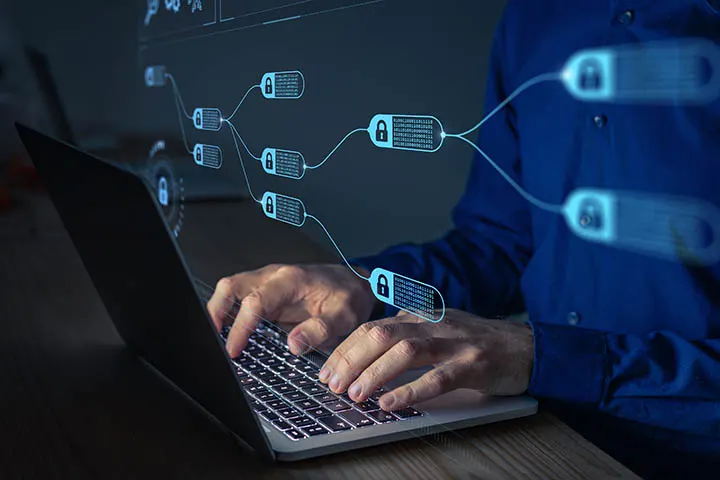Blockchain Opportunities and Applications in Healthcare

In the healthcare field, where the security and privacy of patient information are paramount, blockchain technology could prove an effective solution to improving how valuable data gets stored. But what is blockchain technology, and how does it work? What advantages do blockchain databases have over other data storage technologies? Let's look at some blockchain applications in healthcare.
What Does "Blockchain" Mean?
Blockchain is a system that records and stores transaction records. Each transaction makes up a single block. Cryptographic keys, also known as hashes, hold these blocks together. These keys stay in connected ledgers and are constantly re-synchronized to keep the information up to date.
In layman's terms, it's a unique kind of database—a collection of information stored digitally. The storage structure of blockchain databases is the main difference between it and other database technologies. Blockchain databases are decentralized, which means they can link information from across the world. If a hospital has multiple branches in different locations, an employee from one hospital can log information, and another employee at another location can then access that information. All the information gets stored in a connected chain that people can view from anywhere, as long as they have access.
Wait, you might ask—doesn't that sound dangerous? Fortunately, blockchain databases are known for being secure. You can't edit information from blockchain databases without overwhelming approval from all users. If a hacker did edit information, their edits would get discarded for not matching everyone else's copy of the database.
The Benefits and Downsides of Blockchain Technology
There are plenty of blockchain opportunities and applications in healthcare, but there are also some downsides to using this database technology. Blockchain databases can prove highly beneficial in healthcare settings, especially when managing and protecting electronic medical record (EMR) data.
However, because the information stored in blockchain databases is easily accessible, you shouldn't use them to store personal medical information without special precautions. For example, blockchain databases can be designed to only share information within an organization instead of publicly, which makes them safer.
As long as people use blockchain technology carefully and correctly, hospitals will see numerous benefits. These benefits include faster and cheaper data management, data security, and the seamless transfer of information in case of provider switches.
Protecting patient information is essential, and so is using top-of-the-line equipment in your hospital. Med One Group is a trusted hospital equipment supplier dedicated to ensuring medical facilities have the supplies they need to provide optimal patient care.
